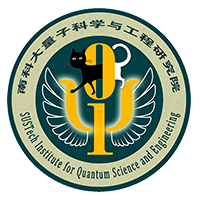SUSTech 3D Quantum Hall research collaboration ranked in top ten scientific developments
On January 11, the Chinese Academies of Science and Engineering announced the ten most important steps forward in Chinese science and technology in 2019. Southern University of Science and Technology (SUSTech) Department of Physics Associate Professor Zhang Liyuan’s research group was selected as one of those ten progressions, with their experimental proof of the 3D Quantum Hall effect that was published in Nature.
The review talked about how Chinese scientists were the first to observe the 3D Quantum Hall effect. The Hall effect describes the relationship between electric force and magnetic force when a magnetic field influences a metal and a semiconductor. Over the past 140 years, the Hall effect and Quantum Hall effect has been theorized in the international scientific community. The research group observed the clear evidence of the 3D quantum Hall effect in millimeter-scale zirconium telluride (ZrTe5) bulk single-crystal materials for the first time. They pointed out that the outcome may be induced by the charge density wave generated by the interaction under the magnetic field.
On May 9, Nature published a paper titled “Three-dimensional quantum Hall effect and metal-insulator transition in ZrTe5.” The article was completed by SUSTech, the University of Science and Technology of China (USTC) and Singapore University of Technology & Design (SUTD). SUSTech Associate Professor Zhang Liyuan from the Department of Physics worked with USTC Professor Qiao Zhenhua and SUTD Associate Professor Shengyuan Yang.
Associate Professor Zhang Liyuan has been with SUSTech since 2014. Zhang Liyuan’s main research interests are in experimental quantum transport in condensed matter physics. He has published more than 30 papers in high-impact journals such as Nature, Nature Physics, Physical Review Letters, Advanced Materials, and Nano Letters.
Paper link:
Related news:
ScienceNet reports:



